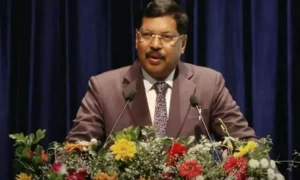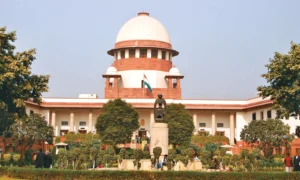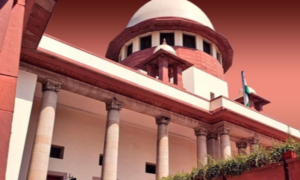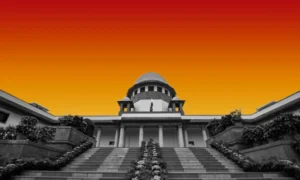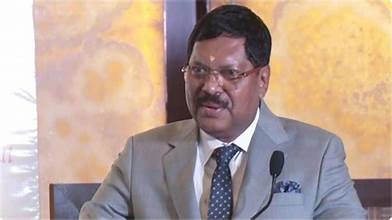
Chief Justice of India BR Gavai on Friday recalled his four-decade-old legal career, stating that he entered the legal profession in 1985 as a young law student before rising through the Bar and Bench to the country’s highest judicial office.
He remarked that whether serving as advocate, judge, or later as Chief Justice, he had always adhered to the conviction that public office is not an instrument of authority but a constitutional responsibility and an opportunity to serve the republic. Revisiting his professional odyssey, the Chief Justice recalled that he entered the legal profession in 1985 as a young law student before rising through the Bar and Bench to the country’s highest judicial office.
He remarked that whether serving as advocate, judge, or later as Chief Justice, he had always adhered to the conviction that public office is not an instrument of authority but a constitutional responsibility and an opportunity to serve the Republic. Judicial office, he said, must be viewed not through the prism of power but through the constitutional promise of delivering justice to society. He reflected on the philosophical influences that shaped his judicial outlook, noting that the teachings of Dr. B.R. Ambedkar and the values imparted by his father had consistently guided him. He expressed satisfaction that the first judgment he delivered as Chief Justice pertained to environmental jurisprudence—an area constitutionally protected under Articles 21, 48-A, and 51-A(g). The decision, he remarked, symbolised the Court’s continuing commitment to environmental justice, sustainable development, and ecological constitutionalism, echoing seminal decisions such as M.C. Mehta and its progeny. Justice Gavai further recalled that during his tenure he authored several significant rulings relating to judicial reforms and institutional strengthening, whether concerning improvements in administrative functioning, procedural efficiency, or ensuring uniform access to justice. As the nation celebrates 75 years of the Constitution, he expressed pride in contributing to the constitutional mandate of social and economic equality, drawing from the transformative vision embedded in Articles 14, 15, 17, 38, and 39. He reiterated that the judiciary must always function as a cohesive constitutional institution rather than as an aggregation of individuals, affirming that the administration of justice is a collective constitutional enterprise. Concluding his address, the Chief Justice conveyed deep gratitude to colleagues at the Bench and Bar from whom, he said, he had learned immensely over the decades. He stated that he was stepping down from office with complete satisfaction and fulfillment, confident that he had discharged his duties to the institution and the nation with sincerity, commitment, and constitutional fidelity.
📰 Crime Today News is proudly sponsored by DRYFRUIT & CO – A Brand by eFabby Global LLC
Design & Developed by Yes Mom Hosting

